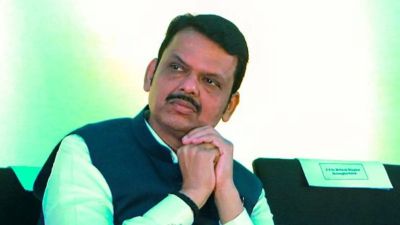PIL asked for mile, settles for an inch
With the petitioners changing their tune altogether and delinking the Government8217;s decision to cut IIM fees from its implications for t...

With the petitioners changing their tune altogether and delinking the Government8217;s decision to cut IIM fees from its implications for the institutes8217; autonomy, HRD Minister Murli Manohar Joshi won the battle in the Supreme Court today. At least, for now.
A three-judge bench, headed by Chief Justice V N Khare, disposed of the PIL when the petitioners said they were prepared to 8216;8216;accept8217;8217; fee reduction if the Government undertakes to preserve the autonomy of those centres of excellence.
This was in sharp contrast to what they had prayed for in the PIL. It had asked the court to quash Joshi8217;s February 5 fee-cut order and, in a rare move, had even named the Minister as a respondent for allegedly trying to tighten his control over IIMs.
However, appearing for the petitioners8212;a part-time faculty, a former student and a current student8212;for the first time today, senior advocate Harish Salve raised eyebrows when he told the court he had no objection to the fee cut as such but was concerned only about the adverse impact it might have on the IIMs8217; autonomy.
To which Additional Solicitor General Mukul Rohatgi responded by saying the Government would make good the revenue shortfall arising out of the 80 fee cut. And then repeated Joshi8217;s claim that the fee cut did not amount to 8216;8216;interference8217;8217; in the autonomy of IIMs. So the legal battle which has been widely seen as a symbol of the reforms required in higher education ended abruptly right in the second hearing without going into the merits of the fee reduction order.
| nbsp; |
Joshi says I respect autonomy; IIMA says we need to define it
|
||||
| nbsp; |
8226; HRD Minister Joshi: Sponsored campaign by vested interests who do not want education to reach the common man has been exposed. Govt never interfered with autonomy of these institutions nor it will in future. These institutions are set up by the government. All of them have to work under the memorandum of association,8217;8217; Joshi told reporters. |
nbsp; | |||
Since the IIMs have so far kept away from the court, Justice Khare observed today while disposing of the PIL that they were free to pursue whatever remedies they deemed fit.
The whole controversy now boils down to the meaning of the Government8217;s assurance in the court on autonomy. Salve told The Indian Express that the HRD Ministry has emerged weaker from the case because it cannot anymore tell the IIMs to increase the faculty-student ratio and reduce the size of its corpus. 8216;8216;If it ever again issues any direction to the IIMs, the Government will be hard pressed to show that it is not violating its commitment to the court of preserving their autonomy,8217;8217; Salve said. But Rohatgi is equally vehement in claiming that the Government had got the better of the petitioners. Though Salve came up with an unexpected move, Rohatgi did not feel the need to seek fresh instructions from the Government. 8216;8216;I did not make any concession on autonomy,8217;8217; Rohatgi told The Indian Express. 8216;8216;If you think anything has changed on account of my statement, you will first have to define autonomy.8217;8217;
Which is exactly what IIM Ahmedabad director Bakul Dholakia said this evening, reacting to the SC8217;s ruling.
8216;8216;The board of governors,8217;8217; Dholakia said, 8216;8216;needs to see what is the definition of autonomy and who is defining it8230;Effective operational autonomy is an important element that determines the quality of all our activities, so we need to understand the full implications of the government8217;s assurance.8217;8217;
Today8217;s climbdown by the petitioners follows the tough questions put to them in the first hearing on February 16 by Justice Khare asking why they were objecting to the fee cut when the IIMs themselves did not seem to mind it.
- 01
- 02
- 03
- 04
- 05






























